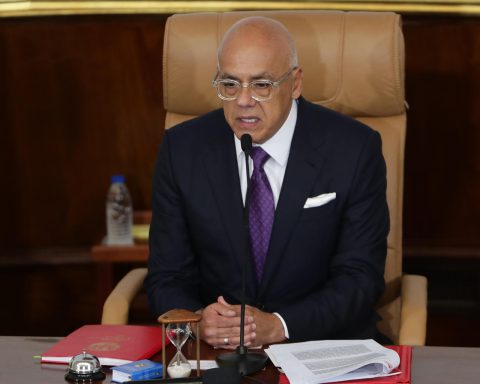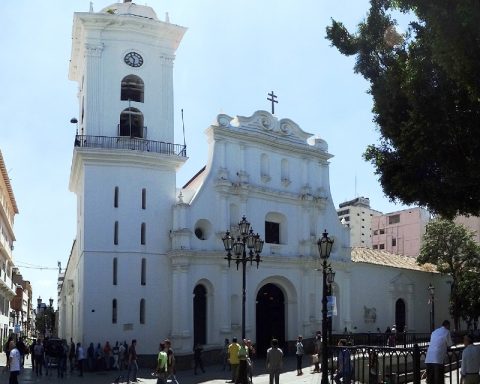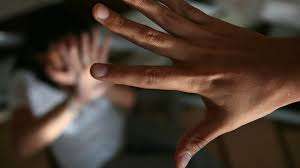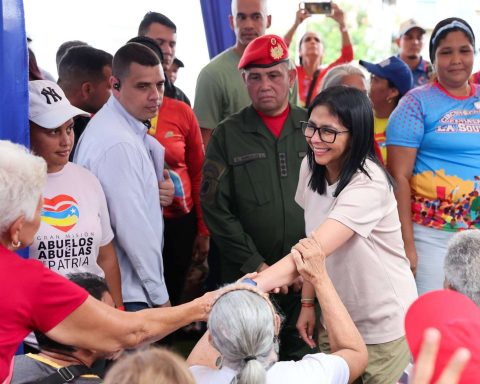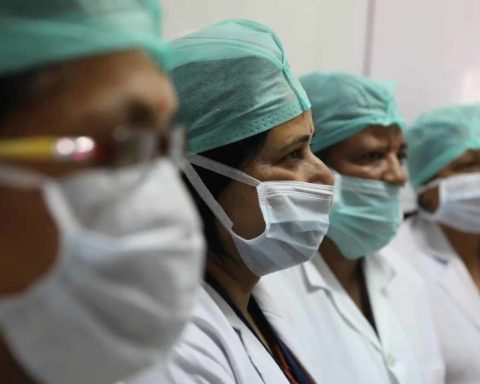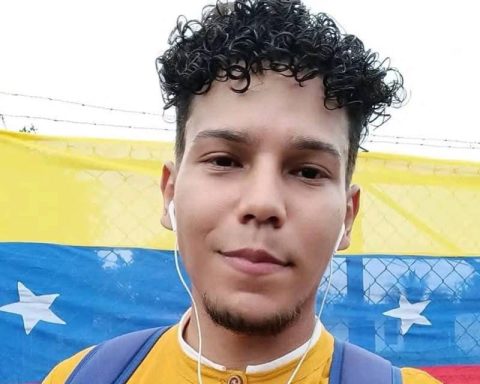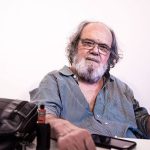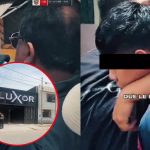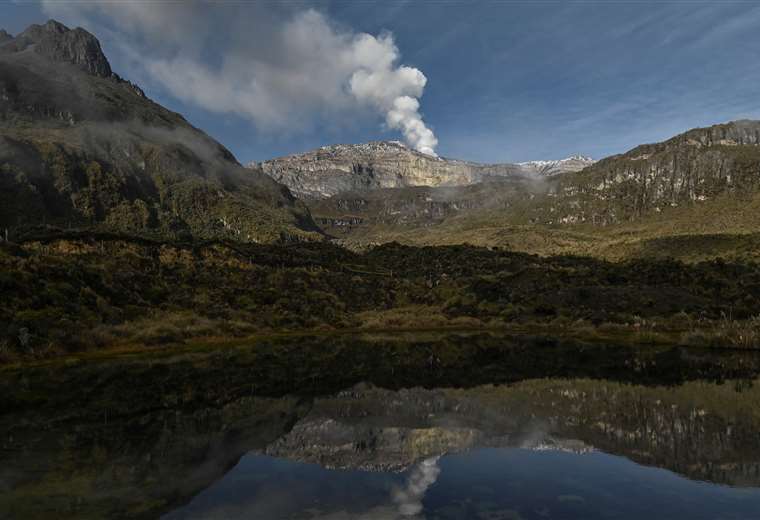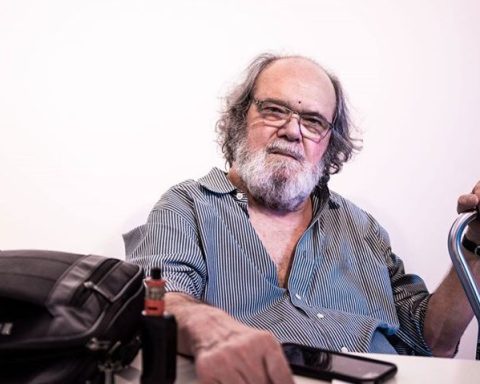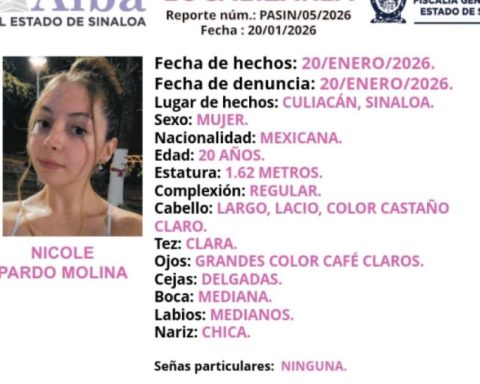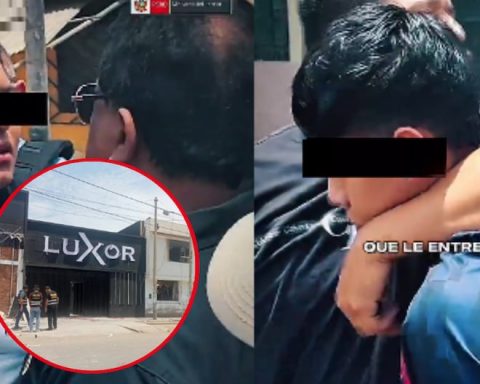After the controversy that arose last year after the scandal of pedophilic priests in Venezuela, another situation related to the ecclesiastical sector, although not as traumatic, caught the attention of public opinion this week when it was learned that the Catholic Church itself, through of the Archdiocese of Caracas, to denounce and make known that a citizen identified as Héctor Márquez was posing as a priest to offer his services to unwary people when they were in establishments such as restaurants, shopping centers and private clubs.
The Episcopate issued a statement in this regard, signed by the priest Antonio Abeijón, chancellor and secretary of the Archdiocese of Caracas, accompanied by an image, in which he stated, among other things, that “the subject of the images, identified as Héctor Márquez , who wears an alb and a chasuble is not a priest or deacon and is performing baptisms and weddings at Club Campestre Los Cortijos, Sucre municipality, as well as in other party houses.
The church, in addition to raising the complaint before the community, also recalled that, by express order of the Archbishop of Caracas and Cardinal Baltazar Porras, the celebration of any sacrament in clubs and party spaces is prohibited.
As a consequence of Márquez’s actions in said club, the statement “urged the parish priests to send a letter to the representatives of these places, which are within the limits of their parishes, to reiterate said prohibition, and in turn inform your communities about this fact”.
After what happened, different media outlets have focused on alerting citizens about the preventive actions that must be taken to prevent this type of fraud from repeating itself.
We consulted the opinion of Ramón Antonio Pérez, a journalist with a long history of religious issues in the country, who commented to Last News that this situation has occurred with some regularity in Venezuela and has been denounced by the ecclesiastical authorities and that in most cases it is about people who, appealing to “the condition of Catholics, add the label of Orthodox, Anglican , of traditional or reformed, who, protected by the freedom of worship and due to the ignorance of the parishioners on how to detect these individuals, make improper use of the priesthood, appearing in celebrations of a religious type, such as baptisms, marriages, obsequies and first communions and with this they break with the line that exists between the Catholic Church and the Venezuelan State, which recognizes it as a religious institution”.
How to identify them? The communicator explained that one of the characteristics that the alleged priests present is not having recognized legal documentation that makes them assert themselves as representatives of the Catholic Church and being “incardinated” to any church in Venezuela.
“A priest joins an archdiocese or a specific diocese of Venezuela and from there he does his ministry in the different parishes or in the entities where his bishop, or his guide or his pastor designates him to work,” explained Pérez, who added that each priest has a card that accredits him as a member of the corresponding diocese or archdiocese in order to perform his functions.
In this regard, the interviewee noted that each parishioner must have these people fully identified with the corresponding identification, “if they do not have it, they remain under suspicion.”
He added that another detail that allows the false priests to be identified is the excessive interest they show in receiving the stipend for the celebration they are going to hold.
“These people show an anxiety to receive money, for which they could also be suspected,” he stressed.
The journalist also echoed the recommendations made by the Archdiocese of Caracas in the case and added that “these individuals, in religious attire, go to clubs, cemeteries, party agencies to offer their services, and in turn the directors or responsible for those places, unaware that they must present a card or documentation that accredits them”.
Likewise, he stressed that it is necessary to be alert for the easy offer of solution to the procedures that are typical of an office or parish office, that is, that only before these instances is it that religious services are carried out and in this regard he stressed that false priests They do not have the possibility of entering the names of those who have received the sacraments such as baptisms or first communions in the parish books.
Another aspect to consider – added Pérez – is the ambiguity or imprecision when they are approached about their place of residence, since, in general, they are itinerant people who “perhaps at some point were priests and for some reason resigned or were expelled as priesthood officiants.
communication strategy
Journalist Jesús Manzanárez, a specialist in the activities of the Catholic Church, recommended that, when a situation of this nature arises, the media should echo the complaint through institutional information “in order to truthfully disseminate what is what is happening in this regard, and not fall into conjectures that, in any case, could disperse the complaint”.
In the specific case of the false priest, Manzanárez highlighted the fact that public opinion has echoed the complaint that was made and that it has been sufficiently disseminated by the different media.
Precedents on these cases
The existence of people who assume priestly offices without the authorization of the Church is not a phenomenon that is limited to what happened at Club Campestre Los Cortijos, since similar situations have occurred in the recent past in other areas of the country. Exactly one year ago, the Bishop of Puerto Cabello, Monsignor Saúl Figueroa, denounced that false priests “were making a killing offering masses on the Carabobeño coast.”
Regarding this case, the prelate specified that during Holy Week, these characters celebrated masses at the House of Culture of Morón and at the Diego Armando Maradona sports center, in Puerto Cabello.
One of the masses was celebrated on April 13, Holy Wednesday, in the aforementioned sports arena. As for the House of Culture of Morón, false masses were offered there on Holy Thursday, Friday and Saturday. Earlier, in 2015, the Bishop of Guarenas, Gustavo García Naranjo, denounced that a small group of impostors operated in various regions of the country seeking to create confusion and catch unwary people.
